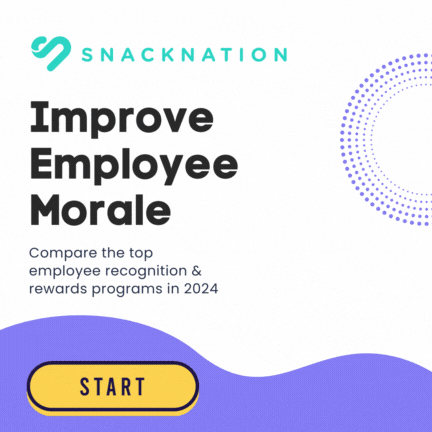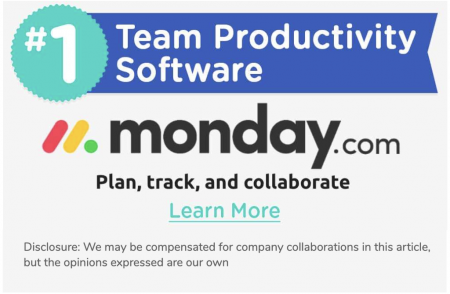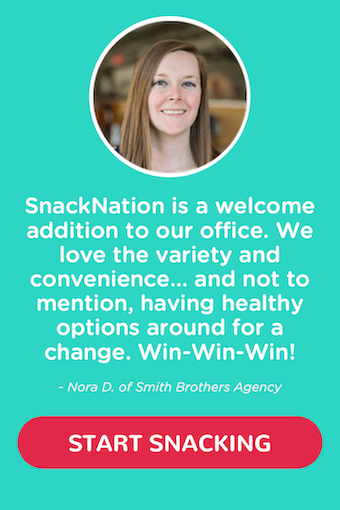Hiring managers often ask common job interview questions to get a sense of whether a candidate is a good fit for the job. While there are many different types of questions that can be asked to help surface ideal candidates to the top (or indicate any red flags), there are some that tend to pop up more frequently than others.
In the hiring process, the job interview is the first (and potentially last) opportunity where you’ll be able to have a face-to-face interaction with the candidate about the new job. It’s this part of the interview process where you can ask job candidates the right questions about their experience, qualifications, skill set, career goals, and even very specific questions such as their preferred management style and work environment (in-person, hybrid, remote, etc.).
✨ Pro-Tip from The Assist: Focus on the three C’s — the candidate’s qualifications, character, and culture fit. By asking about these three things, you’ll get a well-rounded picture of the person and whether they’re right for the job.
Asking good questions can be the key to helping hiring managers shorten recruiting cycles and fill positions with quality new hires.
Let’s jump into some of the most common interview questions for hiring managers to ask a candidate.
P.S. If you are hiring for an Executive Assistant (or are one), check out this list.
Stay up to date in the world of HR with this free State of Hiring & Retention Report, which covers:
- 💡 The current state of hiring and how managers are addressing challenges
- 💸 How offer packages are changing to meet market demands
- 📈 2023 retention trends and which retention tactics are being used by most managers
- 🔮 The future of work environments and what companies are doing to offer flexibility for their employees
Page Contents (Click To Jump)
Common General Interview Questions
1. Tell me about yourself.
Why this interview question is important for hiring managers: This question allows candidates to give a brief overview of their experience and qualifications. It also allows hiring managers to see how well a candidate can communicate and articulate their thoughts.
✨ Pro-Tip from The Assist: This may seem like a simple icebreaker, but it can actually be quite revealing. By asking this question, the interviewer can get a sense of communication style, ability to self-reflect, and overall confidence level. The answer to this question can also give the interviewer a glimpse into a candidate’s motivation for pursuing the position.
2. Why do you want to work here?
Why this interview question is important for hiring managers: This question allows the hiring manager to gauge a candidate’s interest in the company. Additionally, it can give insight into whether a candidate has visited the hiring company’s website and done their research.
3. What is your greatest strength?
Why this interview question is important for hiring managers: This question allows hiring managers to evaluate if a candidate has the necessary skillset for the job. If a candidate doesn’t have the required skills, this question also allows them to explain how they would be able to learn them.
Quick question! Have you ever used a video interview software? Willo is a recruitment tool that is helping companies of all sizes upgrade their interview process.
With this platform you can provide candidates with the ultimate flexibility to answer your questions on their own time in a pre-recorded video interview — try out Willo 👈.
4. What is your greatest weakness?
Why this interview question is important for hiring managers: This question allows the interviewee to reflect on their skills and abilities, and identify any areas that may need improvement. It also allows hiring managers to gauge the interviewee’s self-awareness and level of honesty.
5. What is your working style?
Why this interview question is important for hiring managers: A candidate’s working style can give you a sense of how they might fit into your company’s culture. If you are looking for someone who is independent and able to take initiative, you might want to avoid candidates who prefer close supervision or those who need a lot of direction.
6. What motivates you?
Why this interview question is important for hiring managers: This question allows the hiring manager to see what kind of things motivate the candidate. This can help them determine if the candidate is likely to be a good fit for the company.
7. Why are you leaving your current job?
Why this interview question is important for hiring managers: This question can help hiring managers understand a candidate’s motivation for leaving their current job. It can also give insight into whether the candidate is likely to stay with the company for the long haul.
8. Is there anything else you’d like to ask me?
Why this interview question is important for hiring managers: This question allows the interviewee to ask any questions they have about the company or position, and shows that they are truly interested in the opportunity. It also allows the hiring manager to get a sense of the interviewee’s communication style and whether they are a good fit for the company’s culture.
9. Where do you see yourself in 5 to 10 years?
Why this interview question is important for hiring managers: This question allows the hiring manager to get a sense of whether or not the candidate is looking to stay with the company for the long haul and if they are planning on furthering their career within the company. It also allows the hiring manager to determine the candidate’s level of ambition and motivation.
Download The Common Interview Questions List
Common Interview Questions About a Candidate’s Experience
10. Why do you think you’d be a good fit for this role?
Why this interview question is important for hiring managers: This question allows candidates to demonstrate their understanding of the role and how their skills and experience can be applied.
✨ Pro-Tip from The Assist: This question can help weed out candidates who are clearly not a good match. If a candidate can’t articulate why they would be a good fit for the role, it’s likely that they’re not. On the other hand, if a candidate is able to speak confidently about their skills and experience and how they align with the role, it’s a good sign that they could be worth considering, and shows they took the time to carefully read the job description.
11. What career accomplishment makes you most proud?
Why this interview question is important for hiring managers: This question allows candidates to share accomplishments that are most relevant to the role you’re hiring for. It also gives you insight into what motivates and excites them.
12. Tell me about a time you handled a difficult situation at work.
Why this interview question is important for hiring managers: This question allows candidates to share a specific example of how they handled a difficult situation. This can give you insight into their problem-solving abilities and their ability to stay calm under pressure.
13. How do you manage deadline pressure?
Why this interview question is important for hiring managers: This question allows candidates to share how they manage their time and prioritize tasks when they are under pressure. This can give you insight into whether they are likely to meet deadlines and deliver on their commitments.
14. What have you done in your previous role that’s prepared you for this one?
Why this interview question is important for hiring managers: This question allows candidates to share specific examples of how their previous experience has prepared them for the role you’re hiring for. This can give you insight into whether they have the skills and experiences necessary to be successful in the role.
15. What’s one fact that’s not on your LinkedIn profile or resume?
Why this interview question is important for hiring managers: This question allows candidates to share something about themselves that is not immediately apparent from their LinkedIn profile or resume. This can give you insight into their interests, hobbies, and personality.
Download The Common Interview Questions List
Common Interview Questions That Are Role-Specific
16. Why are you interested in this position?
Why this interview question is important for hiring managers: This question allows you to feel out a candidate’s interest in the role and their motivation for applying. If a candidate is genuinely interested in the position, they should be able to speak to why in some detail. If they are merely looking for any job, it will be much harder for them to give a detailed answer.
17. What skills and strengths can you bring to this position?
Why this interview question is important for hiring managers: This question allows you to gauge a candidate’s understanding of the role and what they can bring to the table. It also allows you to assess whether their skills and strengths align with what the position requires.
✨ Pro-Tip from The Assist: Use this question to see if a candidate is overqualified or under-qualified for the role; if a candidate seems to be a strong culture fit but lacks some experience or skills necessary to do the job well, this question can help to identify those gaps.
18. How did you hear about this role?
Why this interview question is important for hiring managers: This question allows you to gauge a candidate’s level of interest in the role. If they heard about it through a personal recommendation or an online search, it shows that they were proactively looking for roles that fit their skills and interests.
19. What are your salary expectations?
Why this interview question is important for hiring managers: This question allows you to assess whether their expectations are in line with what the position offers.
20. When can you start?
Why this interview question is important for hiring managers: This question allows you to gauge a candidate’s availability and interest in starting immediately.
21. What are you most excited about with this opportunity?
Why this interview question is important for hiring managers: This question allows you to assess a candidate’s level of interest in the role. If they are genuinely excited about the opportunity, it will be evident in their answer.
Download The Common Interview Questions List
Common Interview Questions About A Candidate’s Hard & Soft Skills
22. How would your current team members describe you?
Why this interview question is important for hiring managers: This question allows you to get a sense of what kind of person the candidate is, and whether they will align with your company’s values and fit seamlessly with your company’s culture. Additionally, it can give you insight into how the candidate perceives themselves and how they collaborate with others.
23. Tell us about something you were asked to do that you have never done before. How did you react, and what did you learn?
Why this interview question is important for hiring managers: This question allows you to get a sense of how the candidate reacts to new challenges and whether they are able to learn quickly. Additionally, it can give you insight into the candidate’s problem-solving skills and creativity.
24. How did you handle an urgent problem when your supervisor or manager was away?
Why this interview question is important for hiring managers: This question allows you to get a sense of the candidate’s leadership skills and if they have the ability to take initiative and solve problems independently. It can also give you insight into the candidate’s time management skills and ability to handle pressure.
✨ Pro-Tip from The Assist: If you’re trying to hire a problem-solver, there’s no better way to find out than to ask them this question. It will not only give you insight into their problem-solving abilities, but it will also give you a sense of their work ethic and capacity for stress. After all, when the going gets tough, you need to know that your employees will be able to rise to the occasion. So if you’re looking for a top-notch team player, be sure to ask them about how they handle adversity.
25. What does constructive criticism mean to you?
Why this interview question is important for hiring managers: This question allows you to get a sense of the candidate’s ability to take feedback and whether they are able to learn from their mistakes. Additionally, it can reveal the candidate’s openness to new ideas and willingness to change.
26. Is there software listed for this role that you are unfamiliar with?
Why this interview question is important for hiring managers: This question allows you to get a sense of the candidate’s ability to learn new things and adapt to new environments. Additionally, it can give you insight into the candidate’s willingness to take on new challenges.
27. What’s your understanding of our target audience and how we help them?
Why this interview question is important for hiring managers: This question allows you to get a sense of the candidate’s understanding of your company’s mission and how they can contribute to it. Additionally, it can give you insight into the candidate’s ability to think critically about your business and its goals.
People Also Ask These Questions About Common Interview Questions For Hiring Managers
Q: How can hiring managers prepare for an interview?
- A: There are a few things that hiring managers can do to prepare for an interview. First, they should review the job description and requirements to ensure that they are clear on what the role entails. Second, they should come up with a list of questions that they want to ask the candidate. Finally, they should practice interviewing by role-playing with a colleague.
Q: How long should a hiring interview be?
- A: There is no one-size-fits-all answer to this question. The length of the interview will depend on the role that the candidate is applying for, the number of candidates being interviewed, and the interviewer’s preference. However, a good rule of thumb is to allow 60 minutes for each candidate.
Q: How many questions should a hiring manager ask a candidate?
- A: Again, there is no one-size-fits-all answer to this question. The number of questions that a hiring manager asks will depend on the role that the candidate is applying for, the number of candidates being interviewed, and the interviewer’s preference. However, a good rule of thumb is to ask at least 10 questions per candidate.
Q: What should hiring managers do post-interview?
- A: After the interview, hiring managers should take some time to debrief and reflect on the candidate. They should consider the candidate’s qualifications, skills, and experience, as well as their answers to the questions that were asked. Additionally, they should compare the candidate to other candidates who have been interviewed for the same role.
Q: How can hiring managers find good-quality candidates?
- A: There are a few things that hiring managers can do to find good-quality candidates. First, they can reach out to their network of contacts and ask for referrals. Second, they can post the job on job boards or online classifieds. Finally, they can use a recruiting agency. Small businesses can also outsource HR needs.


![The State of Hiring & Retention Report [Free]](https://snacknation.com/wp-content/uploads/2023/11/Untitled-design-100.webp)











